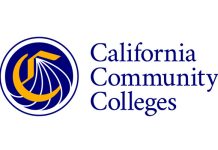 The California Chamber of Commerce today will provide a second round of comments to a state commission that California’s antitrust and competition laws should not be radically changed absent compelling evidence of need and rigorous analysis of economic impacts.
The California Chamber of Commerce today will provide a second round of comments to a state commission that California’s antitrust and competition laws should not be radically changed absent compelling evidence of need and rigorous analysis of economic impacts.
The Legislature in 2022 directed the California Law Revision Commission (CLRC) to examine whether California should make major changes to its antitrust and competition laws, affecting every industry in the state. Today’s hearing is the second of three scheduled to cover seven subject matter topics, with the goal of providing recommendations to the Legislature by the end of the year. The Commission will focus today’s hearing on the Mergers and Acquisitions and Technology Platforms.
CalChamber Testimony
Eric Enson, an antitrust attorney with Crowell and Moring representing CalChamber, in testimony submitted to the Commission, argued that neither the Working Groups nor anyone else has made the case that the current law is inadequate to ensure competitive marketplaces in California.
No Demonstration of Need
There has been no showing that Californians are suffering from higher prices, inferior products or services, or less competition under the current California antitrust regime. The Commission should not recommend statutory revisions without finding a demonstrated need for those revisions.
No Cost-Benefit Analyses
Second, none of the Working Group Reports provide any cost-benefit analysis of the quantitative and qualitative effects — both economically beneficial and economically harmful — that are likely to result from statutory revisions. Antitrust policy making must utilize a cost-benefit methodology to craft policies that improve economic performance and efficiency, ultimately benefiting consumers and workers in California.
The absence of these foundational analytic approaches is compounded by the fact that many of the options identified in the Working Group Reports are not minor tweaks, but are instead major shifts in California antitrust law and enforcement that, in some cases, are not necessary given federal antitrust law and, in all cases, may have an impact on every level of the economy.
For example, Enson noted that the technology sector is an incredibly important driver of the California economy and is a source of dynamism in the overall U.S. economy. Changes in policy that may affect the incentives to innovate or invest in California — such as the development and implementation of ex ante regulation — should be considered carefully before any changes in policy are made. This concern is not limited to the application of antitrust standards or regulation to technology companies, but rather applies across the broader California economy.
Moreover, some of the suggested options are just not necessary given existing federal law, which specifically and adequately addresses, for example, concerns about concerted action and mergers and acquisitions. The CalChamber recommends that no legislation be proposed by the CLRC to the California Legislature until a cost-benefit analysis of that legislation is performed and released for public review and comment.
Finally, because the Working Group Reports do not offer specific legislative proposals, they are too general and imprecise for stakeholders to analyze and comment on and they cannot be used by the CLRC as guides for crafting a specific legislative proposal to the Legislature.
Law Revision Commission
The Law Revision Commission is organized to study selected laws to discover defects and anachronisms and recommends legislation to make needed reforms. This study is among the most far-reaching projects the Commission has undertaken, as measured by its potential effects on the California economy.
The seven Commission-appointed working groups have developed papers on the following subjects: Single Firm Conduct, Concentration in California, Mergers and Acquisitions, Technology Platforms, Concerted Action, Consumer Welfare Standard, and Enforcement and Exemptions. The Commission discussed Single Firm Conduct and Concentration in California at its May hearing. Enson provided testimony to the Commission on behalf of CalChamber at that hearing.
Coalition
The CalChamber is organizing a coalition of industry associations and individual businesses to address this looming issue, which could have far-reaching implications for the competitive marketplace in the state. The coalition will enlist a full suite of services to improve the California business community’s capacity to engage on this issue before the Commission, and ultimately before the Legislature.
Staff Contact: Loren Kaye



